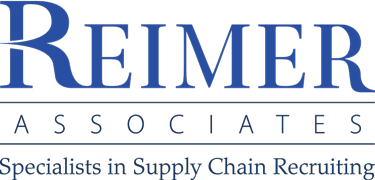As a recruiter I’m involved in the hiring processes of a large number of clients every day. Over the years I’ve been privileged to work with companies who have outstanding hiring practices; I’ve also seen companies that struggle mightily because of poorly planned or cumbersome procedures. People truly are the most important asset a company has, and the process by which new employees join the company is therefore critical. It can ensure the organization’s goals and targets are met or it can be a big factor in a lack of success. The following are five roadblocks that prevail in failed hiring processes.
No concise position description
The lack of an accurate and concise position description encourages failure from the get-go. Think of it through the eyes of the potential employee: If the company does not provide clear specifics and expectations around each position, how can they possibly attract the best talent? Potential recruits need to see well-defined expectations so they can judge whether they have the skills and experience to meet the company’s intended objectives. A clear position description removes any mystery and ambiguity and gives the potential employee the best opportunity to assess their own interest and ability to succeed in the position. The development of a concise position description is also a very healthy exercise that leads to increased productivity, greater teamwork and substantially higher employee satisfaction.
A hiring process that drags on
Sometimes companies have hiring processes that consume many months. There can be a number of reasons for this, including busy schedules that don’t allow for a tightly scheduled interview process, far too many interviews (I recently saw eight) or a lack of consensus among those involved in the hiring process. This does not communicate the right message to potential top-level candidates and quite frankly most will move on to another opportunity. However, it’s important to remember that companies are competing in the hiring marketplace with multiple opportunities in play. As a result they need to see that the hiring process is a direct reflection of their culture and their ability to make decisions. First impressions really do matter and potential employees can be won or lost at this stage.
Inexperienced interviewing skills
Occasionally I’ve seen companies delegate the initial interviews – by telephone or in person – to the most junior people in their organization. In some cases a person who’s worked in the industry for two or three years is discussing a senior-level position with a potential candidate with 25 years of experience. I’m not sure it’s a fair request for companies to make of a junior person. I’ve personally interviewed people who’ve been turned away that I believe would have been excellent candidates had they been interviewed by the hiring manager. I realize time is precious but given the importance of hiring the right people, it would be time well spent.
Waiting for the perfect 10
We all want to find outstanding people for our organizations, but waiting for perfection can be disastrous. Obviously a hiring scorecard needs to be in place and top candidates should score very well, but companies that wait for perfection often pass over excellent potential employees. If you look within your own organization at your current top performers across a wide variety of positions you’ll realize that none of them would score perfectly in all areas, and yet you prize them as the best in your business. Hiring managers need to keep this in mind to be successful.
Underemphasizing cultural fit
Every organization has a distinct culture. Whether large or small, multinational or local, companies develop a culture that reflects the values and personalities of leadership. When companies don’t clearly understand their own culture, or under-emphasize its importance, hiring mistakes are inevitable. A candidate’s specific skills and experience may align very well with your organization’s requirements, but if they lack a cultural fit, the hire will turn out to be painful. As a recruiter and talent scout, one of the most important aspects of my job is to ensure that cultural values line up when matching candidates with my clients.
I have the unique privilege of interacting with a wide variety of companies in the transportation and supply chain industry. Observing their hiring processes has taught me a great deal and in my opinion, companies that have best practices at this stage have the most engaged and satisfied employees – and the best bottom lines.
